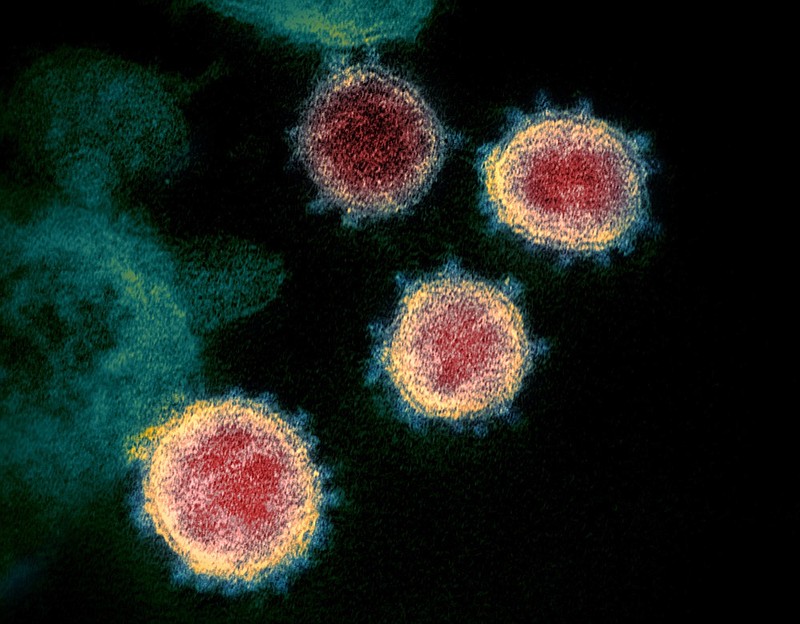While some things about the new coronavirus are known - such as the risk it poses to older adults - other things remain a mystery, including whether children who have the virus but aren't showing symptoms are helping to fuel the spread.
Some pediatric experts are urging parents to keep even seemingly healthy kids away from their grandparents and seniors until the pandemic subsides and COVID-19 is better understood.
"We really don't know the role that children play in transmission of disease to older people - those data just don't exist," said Dr. Kathryn Edwards, a professor and pediatric infectious diseases specialist at Vanderbilt University Medical Center.
But Edwards, who has eight grandchildren now out of school, said she won't be pulling babysitting duty for a while. She acknowledged the possibility that children could have COVID-19 without the hallmark high fever and cough and unknowingly spread the virus.
"There are some reports that suggest you can give the infection if you don't have symptoms at the time, but those data are mostly from adults," she said. "This is a time when grandparents may need to say, 'No, we need to isolate ourselves.' We have to be very careful."
Because COVID-19 is a new disease, scientists are still learning about the illness and how it spreads.
The coronavirus is thought to spread mainly from person to person, similar to other respiratory illnesses: through close contact with droplets produced by an infected person coughing or sneezing, according to the U.S. Centers for Disease Control and Prevention. Although some spread might occur before people show symptoms, the CDC website says people are thought to be most contagious when they're the sickest.
So far, COVID-19 seems to affect children less often and less severely compared to adults. That could be because children are less frequently exposed or not an important reservoir for the new coronavirus, according to the Pediatric Infectious Disease Journal.
However, some preliminary evidence suggests children are as likely as adults to become infected by COVID-19 but are less likely to show symptoms and therefore less likely to be tested.
The majority of children confirmed infected with the new coronavirus have been tested as part of family cluster outbreaks. About 10% of children were asymptomatic and about half had a fever, according to the study.
Dr. Charles Woods, a pediatric infectious disease specialist at Erlanger Children's Hospital, said in an email that knowing more about how asymptomatic transmission might occur is key to controlling the COVID-19 outbreak.
"We currently are not sure about the role that asymptomatic children or adults may play in transmission," Woods said. "We do know that children get this virus, and most of the time it looks like the common cold and other viruses children get all the time. Some children can become ill enough from COVID-19 to require hospitalization and even pediatric intensive care, especially infants and toddlers, but recovery is expected in almost all instances."
Woods didn't go as far as recommending stopping contact with all grandchildren, but definitely those with any fever, cough or cold symptoms.
"If we do learn that spread of COVID-19 from well-appearing children is more common than we have hoped, then contact may need to be even more restrictive for a while," he said. "We will know more and more about how the virus is or is not spreading very soon. So our advice today may change even by tomorrow."
Dr. Tonia Cox, a pediatrician at Pediatric Diagnostic Associates in Chattanooga, is taking as many precautions as possible to prevent the coronavirus from spreading. While she knows the disease poses a danger to her young patients, she said it's the older adults that she's most worried about.
"I think that a lot of the older people are the ones that have this false sense of security," Cox said. "As of today, we're requesting that only one adult come to appointments to try and limit exposure."
Checkups take place in the morning, followed by decontamination, and only sick patients are seen in the afternoon, Cox said. The office is also screening and taking the temperatures of all visitors.
"Social distancing is so important, and everyone just needs to do it," she said. "I know a lot of people are saying that we're overreacting, but if we could all just distance and take more precautions now, we'll be over it sooner."
Contact Elizabeth Fite at efite@timesfreepress.com or 423-757-6673.
